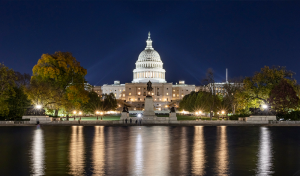
Today I share my January column for Dispatch Energy. In it, I identify some important, but deeply buried, assumptions in the International Energy Agency’s (IEA ) most recent World Energy Outlook…
By Roger Pielke Jr. | January 22, 2026

“This is a case about minor Plaintiffs’ alleged addiction to Defendants’ social media platforms and the alleged adverse effects flowing from that addiction.” That’s how California Superior Court Judge Carolyn…
By Clay Calvert | January 22, 2026

A federal court recently blocked Colorado from enforcing part of a new law that compels social media platforms “to provide non-commercial disclosures to minors about the alleged health impacts of…
By Clay Calvert | January 21, 2026

The most profound way I used AI in 2025 came during one of the harder stretches my family has faced: My mother’s cancer came back. In the past, navigating this…
By John Bailey | January 20, 2026

A year ago, I shared some reflections on how I was using AI and suggested that it’s helpful to think of these tools as competent interns working remotely: earnest and…
By John Bailey | January 20, 2026

For many years, the Consumer Electronics Show (CES) displayed the potential for smart technology to transform our daily lives. At CES 2026, the reality of smart devices came to life…
By Shane Tews | January 16, 2026

Over the last year, the Abundance movement has gained traction in American political discourse. Driven by Ezra Klein and Derek Thompson’s book of the same name, Abundance challenges the progressive…
By Daniel Lyons | January 16, 2026

Back in 2012, Jessica Weinkle, Ryan Maue, and I published the first peer-reviewed paper presenting a time series of global tropical cyclone landfalls of hurricane strength. In that paper we concluded: From currently available…
By Roger Pielke Jr. | January 15, 2026

If we’re going to fix electricity pricing problems, we need to understand what’s actually causing them. Blaming data centers for rising electricity bills is easier than reforming how we allocate…
By Will Rinehart | January 15, 2026

In today’s digital economy, mobile apps are everywhere—and so are the entrepreneurs trying to build them. Over 3.8 million apps are available in Apple’s App Store, with new ones entering…
By Mark Jamison | January 15, 2026

Response to Better Biosecurity for the Bioeconomy by David Gillum. David Gillum makes a compelling and urgent case for improving oversight of high-risk biological research and proposes a National Biosafety and Biosecurity…
By Anemone Franz | January 13, 2026

Parents have valid concerns about how online environments shape their children’s behavior. However, as the House Energy and Commerce Committee advances a comprehensive package of children’s online safety bills, the…
By Shane Tews | January 13, 2026

An appellate court ruled in late November that a Florida law severely limiting minors’ ability to hold social media accounts and imposing age-verification and parental-confirmation requirements on platforms “likely” passes…
By Clay Calvert | January 13, 2026

In 2025, the landscape of digital safety for youth shifted from monitoring to integrated protection. Major platforms have moved beyond simple screen-time counters to introduce granular content filtering, mandatory age-appropriate…
By Shane Tews | January 12, 2026

There were ghosts in the old City Hall subway station when New York City Mayor Zohran Mamdani took the oath of office January 1. They were not the sentimental kind—not…
By Mark Jamison | January 12, 2026